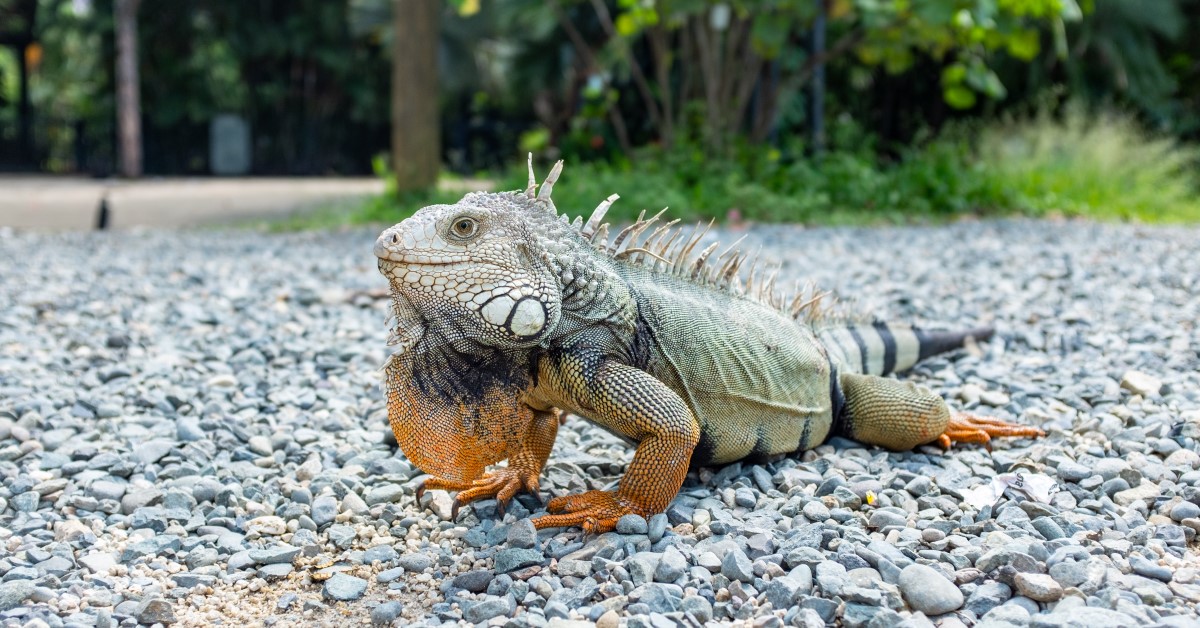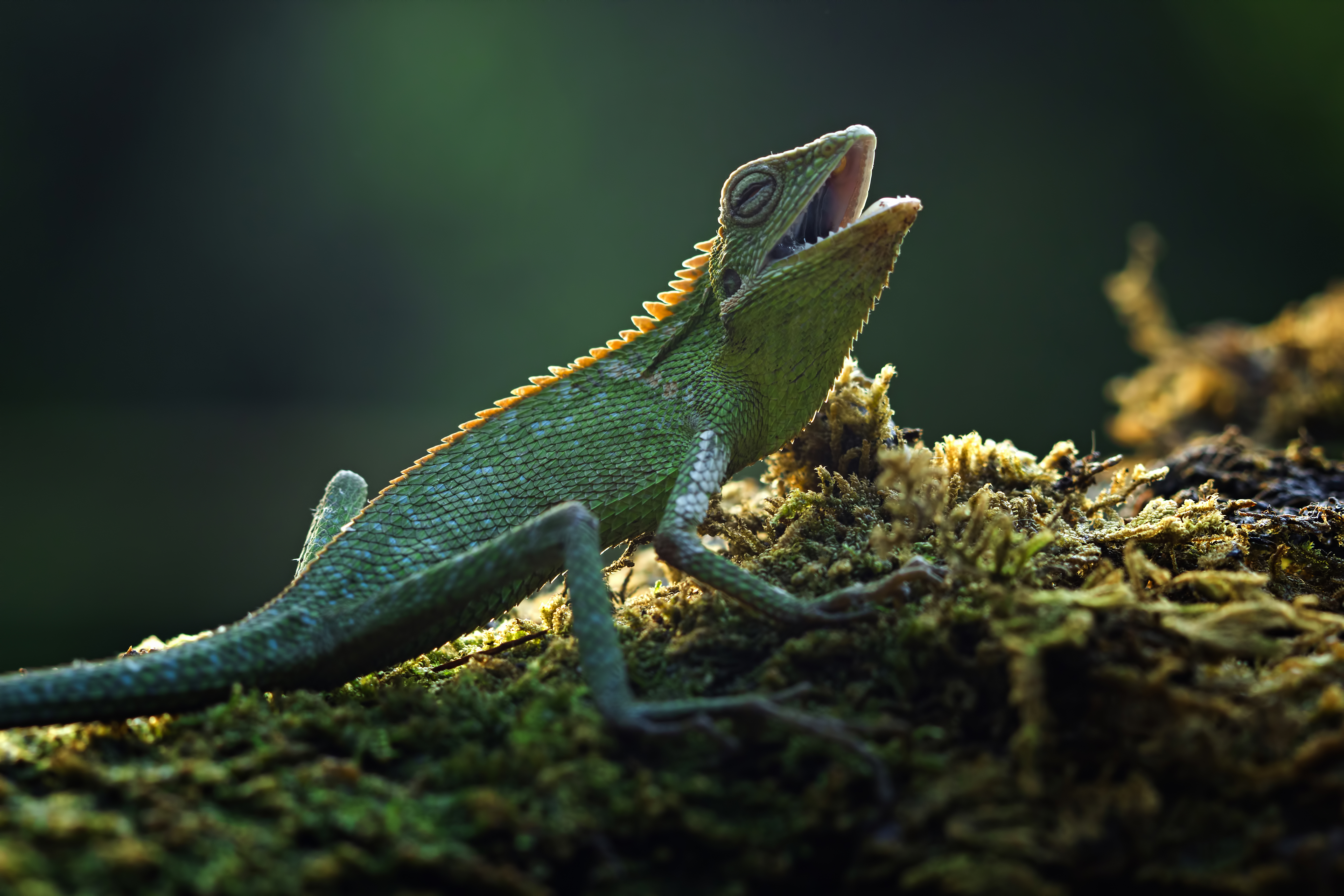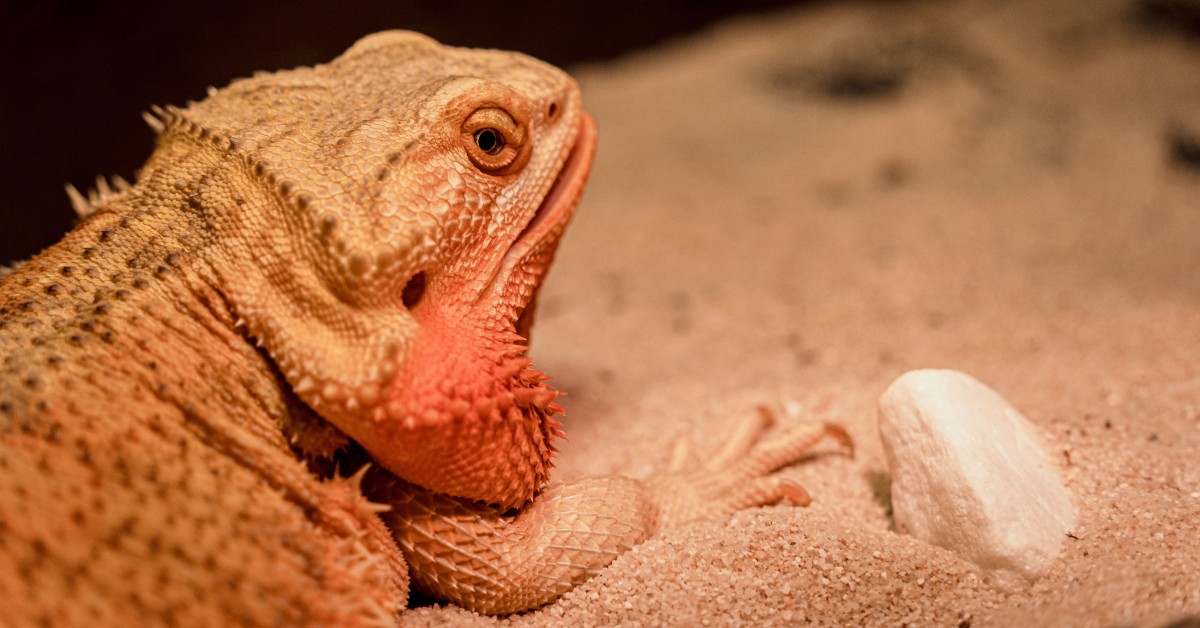What Should Iguanas Eat to Stay Healthy?
Feed your pet iguana a balanced meal consisting of fresh greens, fruits, and vegetables to maintain optimal health.

What you feed your pet iguana will have a significant impact on its health and overall well-being. Unlike many other species of lizards, iguanas are obligate herbivores, meaning they require vegetable matter to survive. In the wild, iguanas primarily consume plant leaves and flowers. In captivity, iguanas do well on a diverse diet of fruits and vegetables.
To promote a healthy, balanced diet for your pet iguana, consider adding the following to their meals:
What to Feed a Pet Iguana
Fresh Greens
Fresh greens should make up a large portion of your iguana’s diet. Some examples of healthy fresh greens for iguanas include kale, collard, romaine lettuce, turnip greens, and mustard and dandelion greens. Be sure to chop up these greens to make them easy for your pet to consume.
Vegetables
Iguanas also enjoy a variety of fresh vegetables. Try feeding your pet veggies like peas, shredded carrots, bell peppers, green beans, and squash. While frozen vegetables can be substituted for fresh from time to time, blanching before freezing causes the food to drop in folic acid and vitamin C. When possible, opt for fresh over frozen. If you do feed your iguana frozen vegetables, thaw and warm them up slightly before serving.
Fruits
Small pieces of fresh fruit can help add variety to your pet iguana’s diet. Examples of fruits that iguanas enjoy include blueberries, strawberries, apples, bananas, and cantaloupe. Fresh fruit should not make up more than 15 percent of your pet’s daily diet due to the high amount of sugar found in natural fruits.
Grains & Fiber
While grains and fiber are optional, many iguanas enjoy the occasional offering of natural bran cereal or whole-grain bread. Cooked rice, cooked pasta, and similar foods can be chopped up and given to your pet. However, grains should not be a daily treat and only be offered on occasion.
What Not to Feed Pet Iguanas
Insects
Mealworms and crickets are a normal part of a reptile’s diet. However, green iguanas are herbivores and therefore do not generally eat insects. Pet iguanas can typically get adequate protein through alternative sources, such as fresh greens and vegetables.
Meat
Iguanas can have difficulty processing meat, which can put a significant strain on their kidneys and liver. As herbivores, iguanas do not need meat to survive and in some cases, eating too much meat can also be fatal for these lizards.
Others
There are also other types of foods you should avoid feeding your pet iguana. Most fruits are safe; however, the seeds from apples, cherries, apricots, peaches, pears, and nectarines can be dangerous. In addition, vegetables like eggplant, avocado, and rhubarb can be toxic. Also, steer clear of sage and rosemary.
Do Iguanas Need Supplements?
Pet iguanas can benefit from supplements administered two to three times per week. Supplements help iguanas receive all of the necessary vitamins and minerals they need to thrive. Consider adding a vitamin D3 and calcium supplement to your lizard’s food according to the package instructions. Multivitamins can also be given to iguanas, usually about once a week.
How Often Should I Feed an Iguana?
Iguanas should generally be fed daily, ideally in the morning to allow your pet to adequately digest while basking in heat and ultraviolet light. Most iguanas will actively move away from their food source once they’ve had enough. At this time, you can remove the food from the tank or offer more as needed.
Why Did My Iguana Stop Eating?
If your iguana suddenly stops eating, you may be concerned about his health. There are several reasons why an iguana may stop eating, starting with inadequate tank temperature. If the temperature in your iguana’s enclosure is too low, it can negatively impact digestion. Poor humidity and UVB are other common reasons why iguanas stop eating.
If tank conditions are adequate, consider other reasons, such as parasites. Although many reptiles carry internal parasites that do not cause them harm, some parasites can cause illness. If your iguana suddenly stops eating and there is no known cause, contact your vet for assistance. Managing parasites typically requires a couple of doses of medication to kill them off.
How Do I Know If My Iguana Is Healthy?
If you’re not sure if your iguana is getting the nutrition it needs to stay healthy, look for several characteristics that signify a healthy pet. These include:
- Eyes: Your iguana’s eyes should be clear and bright without dryness or weeping.
- Spikes: Examine the spikes that run along your iguana’s back to ensure that none are missing or have shed skin on them.
- Mouth: The mouth should be clean without mucus, weeping, or sores.
- Tail and limbs: There should be no abnormal bowing or bends in the tail or limbs. If there is, it could be a sign of metabolic bone disease (MBD).
- Digits: Check your iguana’s limbs to ensure that there are five toes on each and that no nails are missing.
Caring for an iguana can be a rewarding experience, especially if you take the necessary steps to keep your pet healthy and happy. With proper care, including a balanced diet, your iguana could live upwards of 15 to 20 years.
Ready to start saving money on pet wellness care?
Then take a look at Mint Wellness, the pet wellness plan that provides fast reimbursement on routine pet care. Save on vaccinations, wellness exams, preventatives, dental, and more!
Learn More


